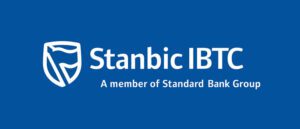
How cash crunch paralysed Nigeria’s economy — United Nations
By Sodiq Adelakun
The United Nations (UN) has explained how the shortage of naira in recent times has affected the country’s economy.
Recall that the inter-governmental organisation said the development which lasted for months mostly affected the informal sector.
“In Nigeria, a shortage of cash, triggered by the replacement of the highest denominations of the country’s currency, hobbled the economy, especially the informal sector,” part of the report tagged “Trade and Development Report Update; Global Trends and Prospects (April 2023),” read.
“Meanwhile, the continuing decline of oil production, accompanied by large-scale oil theft, poses a main threat to strained finances in Africa’s most populous nation.”
It also projected an expansion of the continent’s economy by 2.5 per cent which is a drop from last year.
“Like in other developing regions, weaker external demand and tighter financial conditions have made growth prospects gloomier for the region. In the case of commodity exporters, the fading of the initial effects of the 2022 price boom will add to the equation,” it said.
“Rising global interest rates have triggered significant capital outflows and have further constrained fiscal space, at a time when public finances were already severely affected by costly subsidy schemes aiming at contending the adverse effects of high food and energy prices.
“Under these circumstances, the risk of stagflation is a key concern for many African economies.”
It was gathered that half of the countries, inflation remained double digits in early 2023. In many instances, these recent inflation spikes relate to the continuing depreciation of several African currencies in early 2023 – often following a loss in 2022 of 10-30 per cent of their value vis-à-vis the dollar.
“Public debt, in many cases standing at levels not seen since the early 2000s, is another worry across the continent.
“Out of the 38 African countries that are part of the Debt Sustainability Framework (DSF) of the IMF and World Bank, 8 entities are already ‘in debt distress,’ while 13 are considered ‘at high risk’ of distress.”



